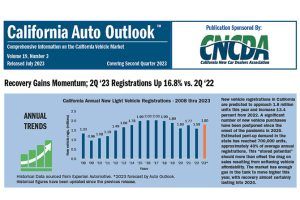Last month, the California Supreme Court issued its long-awaited decision in Adolph v. Uber Technologies, Inc., holding that an order compelling arbitration of the individual Private Attorneys General Act (PAGA) claims does not strip the plaintiff of standing as an aggrieved employee to litigate claims on behalf of other employees under PAGA.
In doing so, the Court disagreed with the U.S. Supreme Court, which held in Viking River Cruises, Inc. v. Moriana, that the plaintiff lacked standing to litigate PAGA claims on behalf of other employees once the plaintiff’s individual claims were ordered into arbitration. The impact of the Adolph decision is that employers will still be required to litigate the claims of other employees in court even though the plaintiff’s own claims are arbitrated.
In other words, as expected, the California courts found a way to save PAGA claims for employees despite the U.S. Supreme Court’s ruling in Viking River Cruises, Inc. v. Moriana.
This is another in a long line of cases in which the California courts have refused to narrow the standing requirements to curb abuses of PAGA.
A brief perspective on the history of PAGA:
- 2004: The inception of the PAGA. While intended to protect employees, “the substantial majority of [PAGA cases] fell short of protecting the interests of the state and workers.”
— Labor Commissioner’s Office - 2006: Law firms specializing in PAGA cases emerge. These lawsuits take nearly 2x longer to resolve, pay employees 4.5x less, cost employers billions, and the law firms take nearly one-third of settlement amounts.
- 2014: CA courts broadly interpret PAGA to curb the use of arbitration agreements.
- 2016: PAGA cases explode by 1,440% with over 5,000 cases filed. Employers have paid more than $8 billion in public settlements in the last seven years and are expected to reach $16 billion in the next five years.
- 2018: $1,118,777: Average cost of one PAGA settlement to an employer.
- 2020: COVID-19 significantly changed CA employment law, dramatically increasing the likelihood that employers will face more lawsuits from predatory attorneys.
- 2022: CNCDA members lead a coalition of business groups to successfully qualify PAGA reform on the November 2024 ballot (raising over $5 million, over half of the funds raised).
- TODAY: While the business coalition continues to grow, both in new members and fundraising dollars, the Adolph v. Uber Technologies, Inc. ruling by the CA Supreme Court is the latest in a long line of cases confirming that employers will get no PAGA relief from California courts. The tsunami of egregious and frivolous PAGA lawsuits will continue, absent decisive action by the legislature or voters.
The Californians for Fair Pay and Accountability Act will go before the voters on the November 2024 ballot. It is now more vital than ever that our members and the public are educated and actively engaged on this issue. We ask that all dealers, staff, friends and family encourage each other to support the initiative to protect all California businesses and their employees.
If you would like to donate to support CNCDA’s Issues PAC to help stop PAGA cases from hurting California employers and employees, please visit www.cncda.org today.








